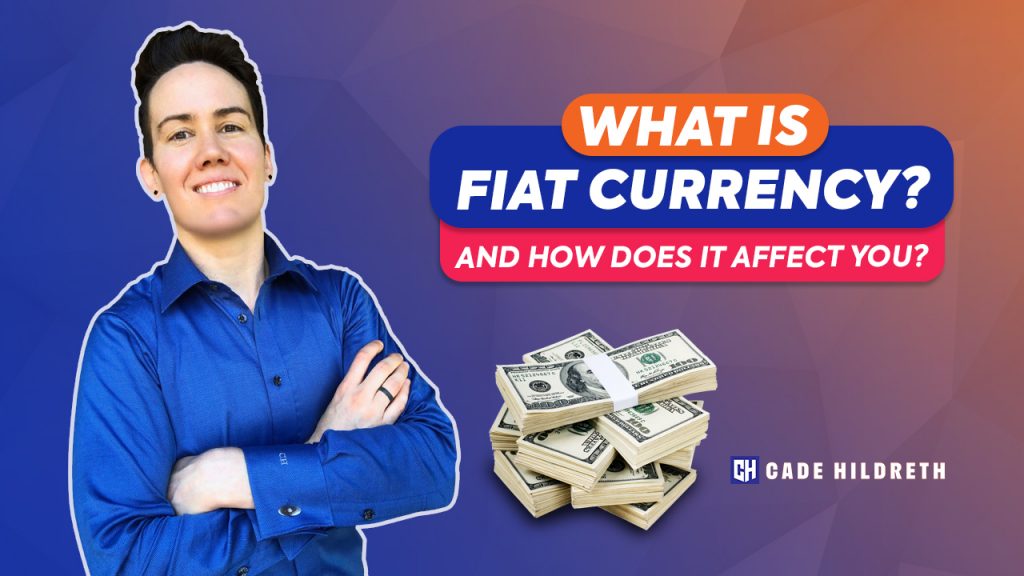|
|
Fiat currency is paper money created by government decree that is not backed by a physical asset with intrinsic value. As of 2020, there are approximately 180 fiat currencies worldwide.
Examples of fiat currencies are the U.S. dollar, the European Euro, and Japanese Yen, among many others.
To understand how fiat currencies work, let’s look at one specific example, the U.S. dollar. Of course, thanks to globalization, the same system that applies to the U.S. dollar now applies to fiat currencies worldwide.
The U.S. Dollar, a Fiat Currency
The U.S. dollar was taken off the gold standard in 1971 by President Richard Nixon (also called “Tricky Dick”). By going “off the gold standard,” I mean the United States government no longer had the responsibility to convert dollars to gold at a fixed amount.
Since that time, our money has not had any physical value—it is just cotton and linen.
The only value that our dollar has is that which the U.S. government states it has and that which we, the people, believe it to have. Also, no fiat currency has survived in all of history. So, you know, that’s concerning.
Fiat Money = Any paper money created by government decree.
Practically speaking, taking the U.S. dollar off the gold standard has had several concerning effects. I’ll share a few concrete examples with you below.
Derivatives, Financial Weapons of Mass Destruction
First, taking the U.S. dollar off the gold standard has allowed a wide range of financial instruments to be introduced.
Financial instruments that benefit the creators, but in many cases, not the investors. A derivative is a financial instrument that is valued based on an underlying asset or package of assets.
It is separated from the assets, like orange juice separated from an orange.
Sometimes, financial groups even do derivatives of derivatives, which would be like squeezing an orange to create orange juice (the first derivative) and then concentrating that orange juice (the second derivative).
Why would the financial industry do this?
Because by packaging things together, low value items can be combined with higher value items and then re-sold to people who probably don’t have a clear understanding of what they are buying. Commonly, the people who are selling derivatives receive incentives to do so. Pretty tidy, right?
This is exactly what happened when unregulated derivatives that played a major role in the 2008 financial crisis—a period known as the “Great Recession.”
Until COVID-19 hit in early 2020, the Great Recession had been the most significant economic downturn in the U.S. since the Great Depression. Yikes, right?
The primary driver of this recession was deregulation of the financial industry, because it allowed banks to engage in the unregulated trading of derivatives. When economic events caused the values of derivatives to plummet, banks stopped lending to each other and the Great Recession ensued.
During this time, an estimated 7.3 million Americans couldn’t pay their mortgages and had their houses go into foreclosure. Another 1.9 million short sales occurred as well, meaning, the purchase prices of these houses were less than what was owed on the mortgage.
Now you know why renowned investing genius, Warren Buffett, called derivatives “financial weapons of mass destruction.”
The Fractional Reserve System
Another powerful example of why fiat (paper) currencies like the U.S. dollar are risky is the Fractional Reserve System.
Based on this system when you put $100 in the bank, the bank is allowed to lend out $90 of it. If the people/businesses who receive the $90 place them into a bank, then $81 can be lent out (90% of the $90). Next $72.9 can be lent out (90% of $81). And so on. It is estimated that this system allows one dollar to be lent out up to 100 different times.
This means that a single dollar can rapidly multiply, creating “ghost” copies of itself.
The Federal Reserve, America’s Central Bank
Perhaps most concerning, our government can now create money—for example, to fund a $2.2. trillion COVID-19 stimulus package—by adding digits on a computer screen.
This has the same effect as pressing new metallic coins and printing new bills, only it’s dramatically cheaper because no printing presses are required.
Most money today is not printed. It is digitally created currency.
Of course, the Federal Reserve (“Fed”) can also combine digitally created dollars with the Fractional Reserve System to really amplify the money supply.
For example, the Fed could print $10 billion in new paper bills and add an another $90 billion in digits (to readily liquifiable accounts). This would create a monetary influx totaling $100 billion.
Almost all of that $100 billion will enter the banking system, which means it will nearly immediately get lent out to governments, people and businesses.
Because banks are only mandated to have 10% of that money in reserves, they could lend out $900 billion, creating a total monetary influx of $1 trillion—that’s $1,000,000,000,000.00.
Pretty wild, right?
Why Should You Care About Fiat Currency?
Practically speaking, what does this mean for you? It means that if the Federal Reserve deems it necessary, a frightening amount of new money could enter circulation, dramatically driving down the value of your existing dollars.
Within the U.S., the average inflation rate is 3.22% per year. And that’s when it’s controlled and things are working right.
If you’re making the average stock market return of only 10%, this also means that you are officially losing one-third of your investment to inflation.
Whoa, right?
If this doesn’t inspire you to learn how to invest and aim to achieve returns of 10% or greater, then I don’t know what will.
What questions do you have about the U.S. dollar and what you should do with your savings, given these risky realities? Ask them in the comments below.

